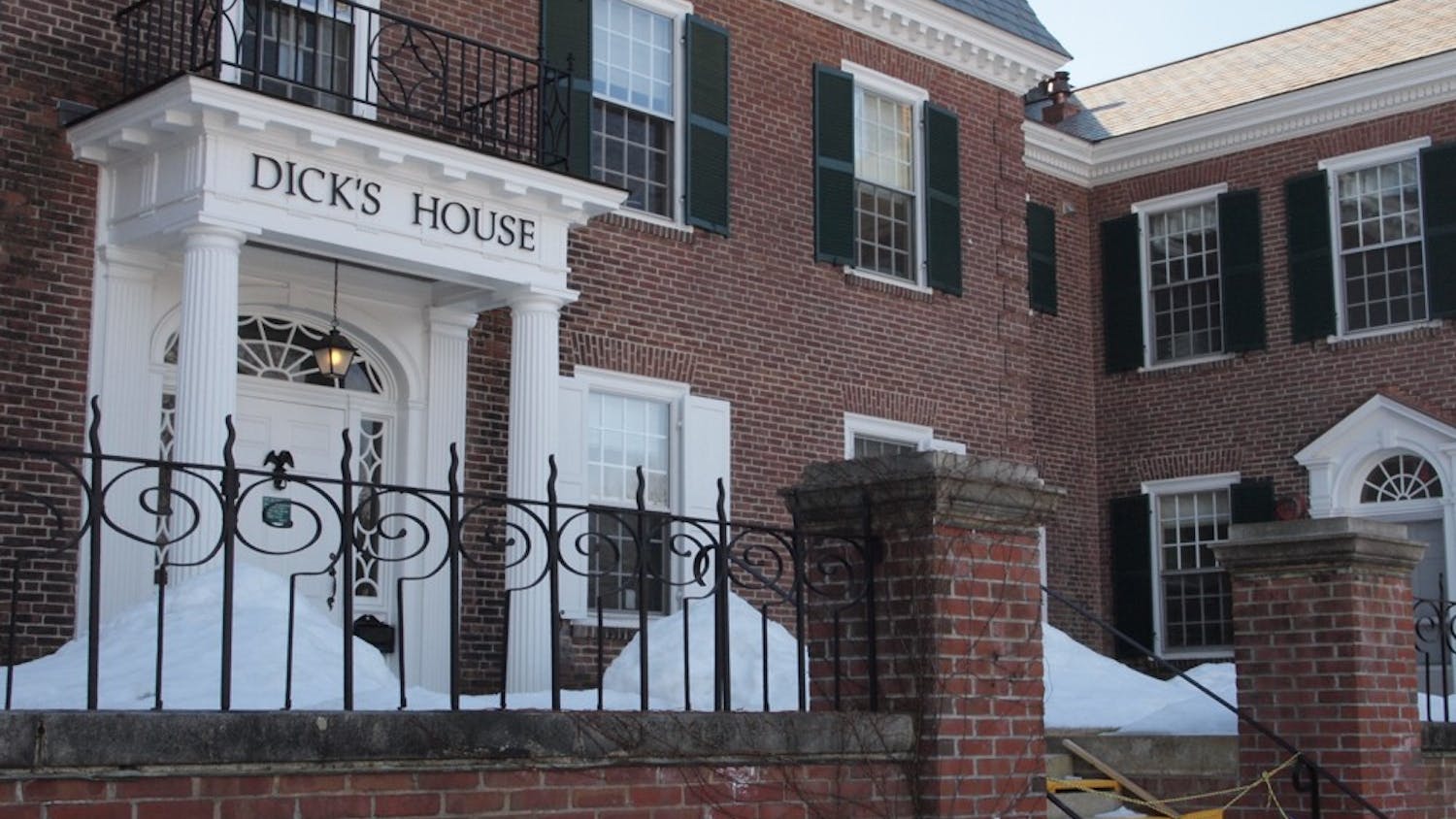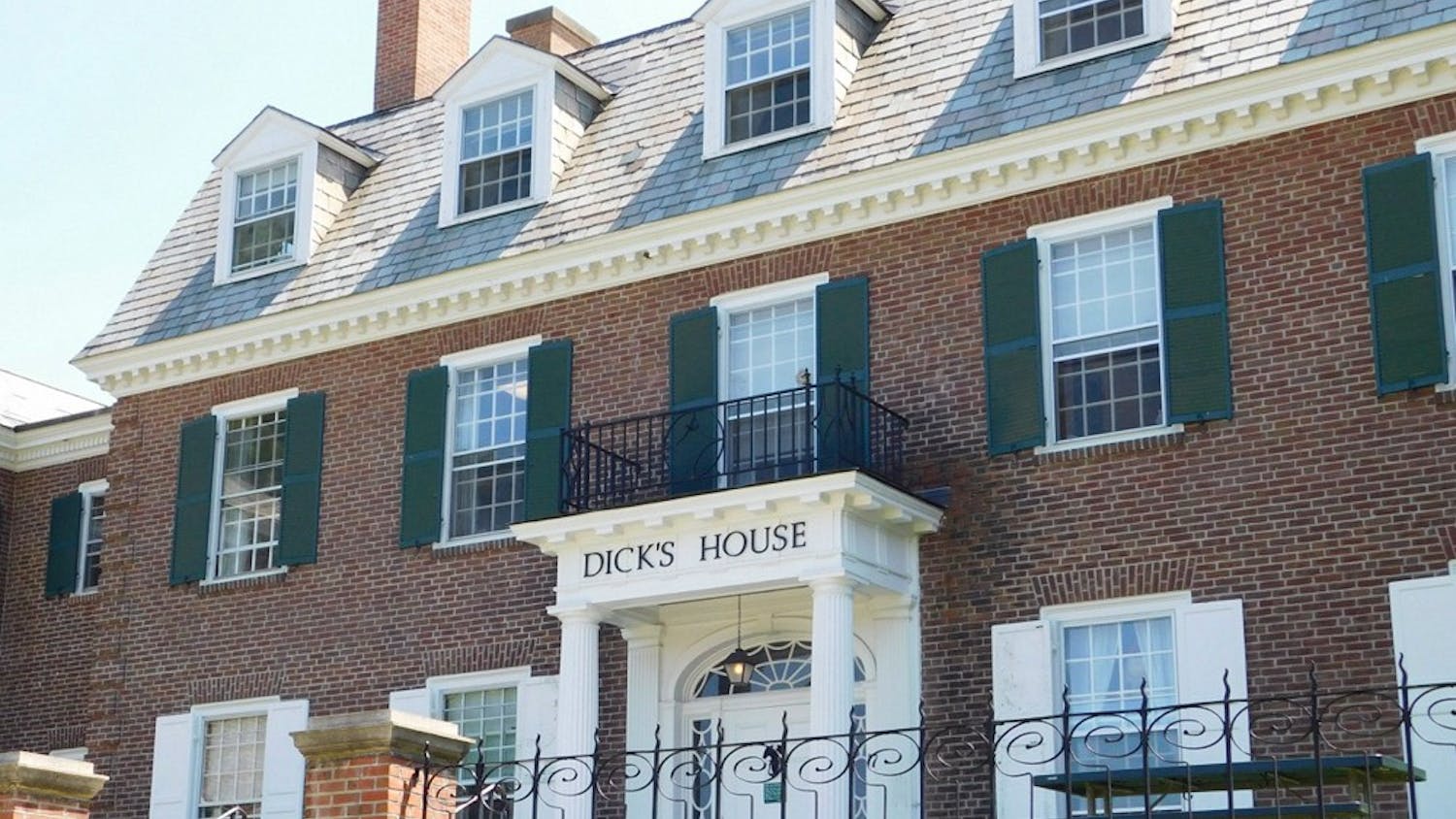College and alcohol are invariably connected: preparing for midterms and preparing for tailgates, finishing your essay and finishing your game of pong, going to class and going out for the night exist in tandem. At Dartmouth — a college jokingly referred to as “The Party Ivy,” with a beer keg as its official-unofficial mascot and whose student population is majority affiliated — this is especially true. It can be difficult for students to keep this balance and, in some cases, can lead to high-risk drinking behaviors.
A student who wishes to remain anonymous has witnessed the dangers of this firsthand, through the experience of having to “Good Sam” a fellow student. It was Homecoming weekend, and the student had woken up at around 1 a.m. Three men were yelling and marching through the hall and tried to barge into the student’s room. Realizing that they had walked into the wrong dorm, they went into the room next door.
“They ended up in the room next to me,” the student said. “And I kind of heard what was going on throughout the night. And they started saying things like, ‘Oh, I had way more to drink than he did,’ ‘He’s fine,’ you know, ‘Don’t be such a p*ssy about it,’ like that kind of thing. I started to get kind of concerned because literally the whole time this person that they’re talking about hasn’t said anything or made any sort of acknowledgement that they are, in fact, alive.”
The student said that he could only hear the sound of the third person vomiting on the floor. So the student went to the bathroom and called Safety and Security. The man next door was found to be unresponsive by paramedics and was taken to the hospital.
“About two weeks after that I got a follow-up from the SNS officer involved, and apparently it had been a really serious situation,” the student said. “I learned from other people on our floor that he was in the hospital for, like, three days after that.”
Earlier this year, the Student Wellness Center released a report on undergraduate alcohol use titled, “Dartmouth Student Well-Being: High-Risk Drinking Prevention.” The report revealed that, in 2018, 41 percent of Dartmouth undergraduates reported having had five or more alcoholic drinks at one time in the two weeks prior, being classified as high-risk drinkers. Fifty-nine percent reported having not had five or more alcoholic drinks at one time in the two weeks prior, with 41 percent of those undergraduates classified as lower-risk drinkers and 18 percent as non-drinkers. The majority of students also practice protective behaviors when drinking: 75 percent eat before and/or during drinking most of the time or always and 65 percent keep track of how many drinks they are having most of the time or all the time.
Despite the majority of students practicing safe drinking behaviors, however, there is still a significant proportion that do not.
Noble Rai ’23 said he was shocked by the prevalence of drinking at Dartmouth.
“I didn’t think it would be so prevalent among the main student body,” Rai said. “It very much feels like if you want to go out and be involved in social life, you need to drink. Alternatives to drinking need to be better advertised and better advocated.”
Collis After Dark is perhaps the most well known of these alternatives. This features events on Friday and Saturday nights such bubble ball soccer, inflata-battles and outdoor movie showings. Additionally, House communities often host events for their residents.
Alcohol-related resources are numerous on campus — some offer support for people struggling with alcohol abuse or provide drinking education and more. The Good Samaritan Policy is just one offered at Dartmouth. The Student Wellness Center provides other resources, such as the Brief Alcohol Screening and Intervention for College Students, or BASICS program, AlcoholEDU for first years, eCHECKUP TO GO, counseling and links to national resources.
Caitlin Barthelmes, the director of the Student Wellness Center, reflected on the developing drinking culture at Dartmouth over her eight years working with the College.
“I’ve seen a lot of evolution happening around the subjects of health and well-being, including alcohol use as well,” Barthelmes said. “I think one of the most notable is just a growing bystander culture in general at Dartmouth from when I began. A lot more endorsement of the idea of stepping and checking in on friends, on peers. I think that’s really exciting because we’re building a culture of care here.”
She also talked about high-risk drinking activity, and suggested that the Dartmouth community should encourage a culture of awareness and care. She said that the students should remind each other to take care of their mental and emotional health.
Correction appended (Oct. 16, 2019): The article originally stated that the three men barged into the student's room. This is incorrect; they tried to barge into the student's room, but were unsuccessful. Also, Rai was incorrectly referred to as she; Rai's correct pronoun is he. The article has been updated to reflect these changes.




